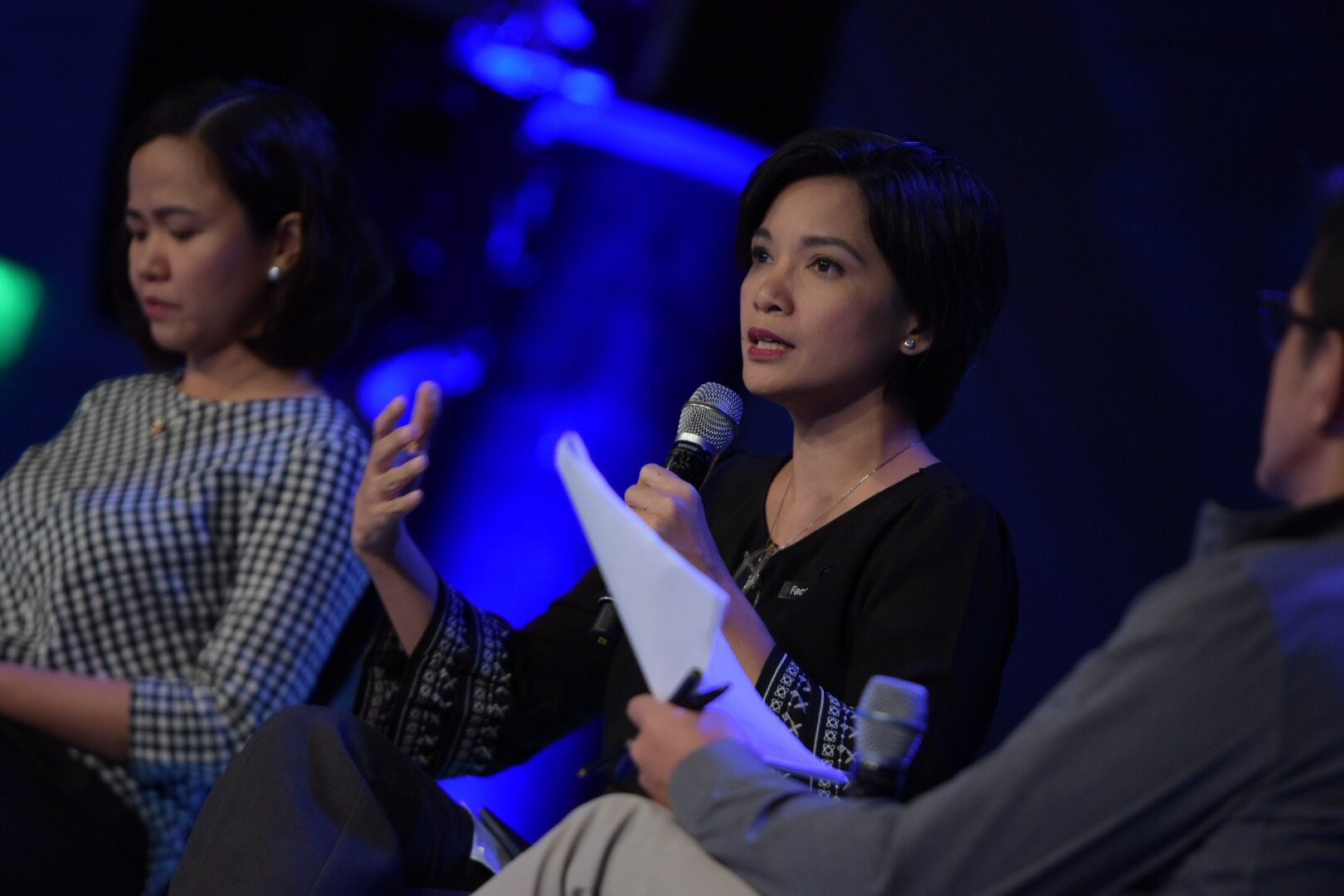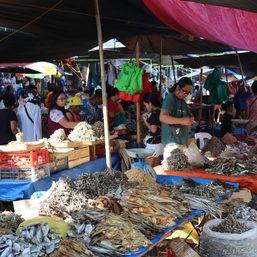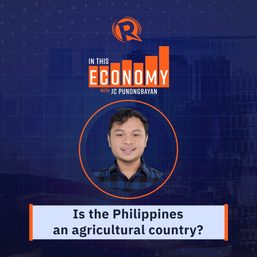SUMMARY
This is AI generated summarization, which may have errors. For context, always refer to the full article.

MANILA, Philippines – Why should we all care about fighting fake news?
For Clarissa David, a professor at the University of the Philippines’ College of Mass Communication, fake news is a real problem that needs to be addressed because it’s “not just about politics.”
“A lot of the fake news in the Philippines, many are about politics, but when you look at the environment, when you open your Facebook feed, many of the fake news are about health, about class suspensions – things that impact your own daily decision-making, that can really change your life,” she said in a mix of English and Filipino.
David was one of the panelists during Rappler’s public forum called “Truth, Trust, and Democracy in the Age of Selfies, Trolls, and Bots” on Tuesday, November 28.
Two other educators joined her in the panel: Department of Education (DepEd) Assistant Secretary GH Ambat, and Cheryll Ruth Soriano, chairperson of De La Salle University’s Department of Communication.
David said people have to think about fake news not just from a political lens, although in politics she said it is “extremely important…to discern what’s fact from opinion.”
“But at the same time, fake news is bigger than that. Fake news is, are we able to tell from a story that crosses your Facebook feed if this is true? What if it’s not about politics? What if it really impacts your daily decision-making?”
Take for example the DepEd’s recent experience when a class suspension announcement from Facebook page “Walang Pasok Advisory” spread quickly on the social networking site.
“Their first announcement on a Sunday was shared 80,000 times. It said, ‘Walang pasok (No classes), November 23, 24, and 25.’ There were only a few who asked DepEd Philippines through Messenger if this is true. By morning, we addressed it, and we said there’s no such thing, we didn’t announce anything, and please, for announcements, go to verified sources of information,” Ambat shared.
“If it’s unverified news in the context of DepEd, we have 27 million students, 640,000 teachers, so when people…come up with things like that, the impact on us is huge,” she said in a mix of English and Filipino.
Both David and Ambat said it’s important for people to call out others who share fake news.
“If you have a friend who shared fake news, you call them out. You point it out and you tell them, because you probably are sharing the same friends, and by you pointing it out, people will take down something they shared, or they will correct it in the comments, and that somehow fixes whatever that fake news has reached,” David said in a mix of English and Filipino.
Ambat does the same with DepEd officials, especially regional directors who have access to teachers and other officials on the ground.
“This is our shared responsibility. If we don’t like fake news, we should be doing something about it as well. It’s easier to allow them to just look crazy or uneducated, but we’re the Department of Education, let’s bring in the word ‘education’ even in the way we post, even in the way that we spread information,” Ambat said.
For Soriano, the recognition of one’s responsibility on social media “doesn’t stop alone in creation” but continues “up to liking and sharing what you see.”
“Ethics is at the center of media creation, but dissemination is different, and I think the problem is that people feel because we’re all here as a mass audience, people feel that they are not responsible for anything as long as it’s just liked or shared,” she noted.
In this post-truth world, David said it’s the role of universities to protect the truth. (READ: Schools ‘responsible’ for making sure graduates can detect fake news)
“We need to instill back to people that facts matter, that the truth matters, and that ultimately in universities, our role is also to make sure that we protect the truth, that we can study it, we can capture it, we can spread it, and we can groom people who will take care of what is true and what is not,” she added.
The panel “Fake news and democracy: What educators and the academe can do” was moderated by Vince Lazatin, executive director of the Transparency and Accountability Network. – Rappler.com
Add a comment
How does this make you feel?


![[In This Economy] Can the PH become an upper-middle income country within this lifetime?](https://www.rappler.com/tachyon/2024/04/tl-ph-upper-income-country-04052024.jpg?resize=257%2C257&crop=295px%2C0px%2C720px%2C720px)


There are no comments yet. Add your comment to start the conversation.